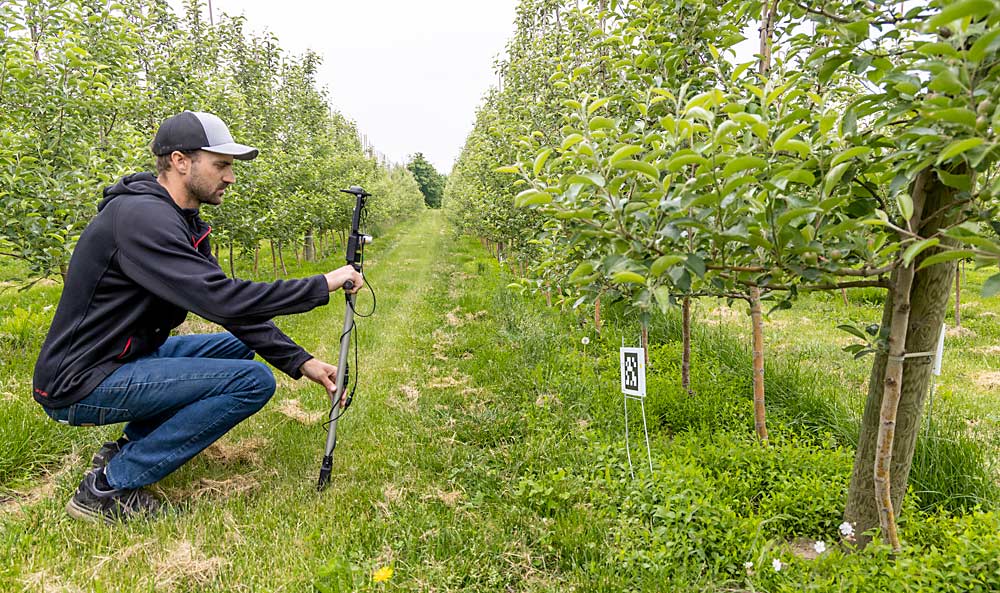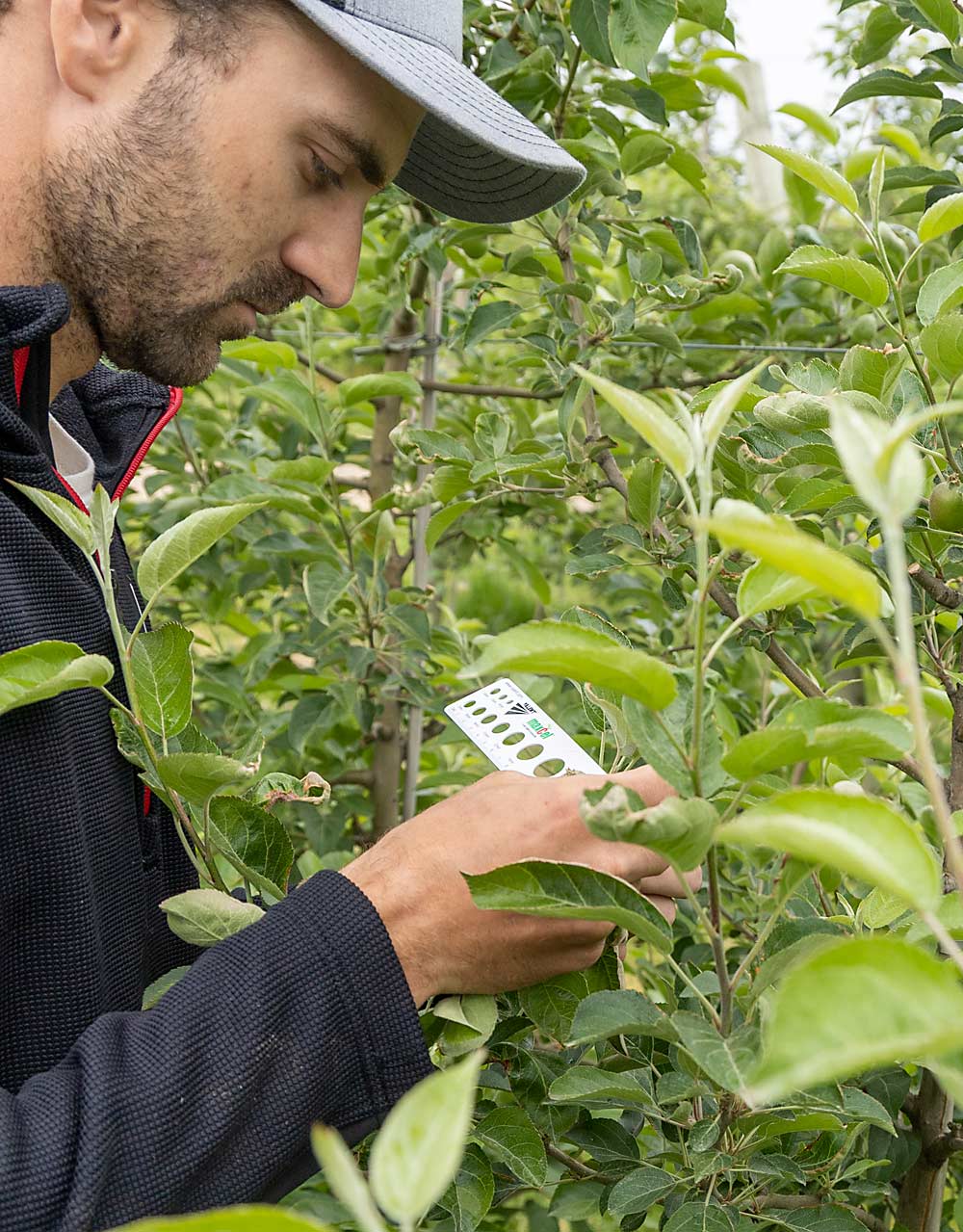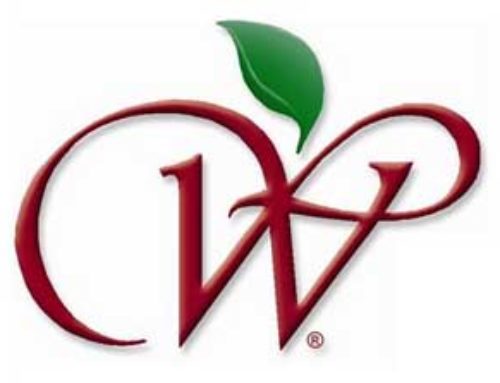
A startup has introduced a new research model to the Michigan apple industry, one that will add to growers’ knowledge of their crop if they pay to support its efforts.
The new company, LTI Ag Research, was founded in 2021. Manager Tye Wittenbach said LTI — short for “Let’s Try It” — conducts contracted research with manufacturers and receives subscription fees from grower-members. As of July, LTI had 46 members representing 24 farms.
Members have exclusive access to research results, receive newsletters and attend field days. They also help steer LTI’s research trials in practical directions.
LTI members want more information on three main topics: thinning, fertigation and chemigation. Most of LTI’s research results will only be shared with members, to ensure they receive value from their investment. In addition, some trials are conducted for private companies that own the data; for example, a chemical company might want replicated data on a new product that hasn’t been released, and those results wouldn’t be made public unless the client wants that, he said.
Wittenbach, 26, spends most of his time in an 80-acre orchard near Kent City, in the middle of the Fruit Ridge, Michigan’s largest apple-producing region. His office is across the street, in a building owned by Paul Umlor, one of LTI’s investors. As LTI’s only full-time employee, Wittenbach sets up the trials and performs most management tasks. Three part-time employees do most of the data collection, he said.
The orchard, owned by grower Pete Nyblad, is “exactly what you want for research” in a modern commercial setting, Wittenbach said — high-density Honeycrisp, Gala and Fuji trees.
Nyblad said LTI acts as a management company for his 80-acre parcel, performing all the necessary management tasks while also conducting research trials.
Some of the trials — testing a new, unregistered chemical, for example — require the removal or destruction of fruit, but only a small percentage is lost to such research. Nyblad sells the rest. The arrangement frees him to take care of his other properties. And as a member of LTI, he has access to its research results, Nyblad said.
Wittenbach grew up on a family orchard in Belding, Michigan, and studied horticulture at Michigan State University. His original goal was to be an extension educator, but he fell more in love with the industry side of agricultural research. When LTI’s investors pitched him the idea of forming a private research company for the tree fruit industry, he couldn’t pass it up, he said.

LTI investors Dan Zemaitis, John Rasch and Umlor are crop consultants with Wilbur-Ellis. They saw a need for more applied apple research in Michigan and decided Wittenbach, a former Wilbur-Ellis intern, would be the perfect person to carry it out.
“There aren’t many researchers that can run stats, analyze data and formulate protocols, then jump in a sprayer, manage labor and do the actual work growers do,” Zemaitis said. “Tye bridges the gap with his personality, mindset and work ethic.”
Zemaitis, Rasch and Umlor invested as individuals, not as Wilbur-Ellis employees. There’s no direct affiliation between LTI and Wilbur-Ellis, though LTI does conduct research on some of the agricultural service company’s products, Zemaitis said.
So, how will LTI’s private research efforts fit with Michigan State University Extension’s ongoing public work? According to Good Fruit Grower interviews, navigating public and private information-sharing will be complicated, but there’s always room for more tree fruit research.
“There will never be enough people to do enough of the research we need to do,” said MSU apple production specialist Anna Wallis. “There are so many questions that need to be answered. We need lots of people working on them from lots of different angles.”
Wallis, who covers the greater Grand Rapids region (which includes the Fruit Ridge), said LTI and MSU Extension have already set up a pruning trial together. Its results will be available to the public, she said.
“The industry here is very tight-knit and, by and large, values sharing and learning from each other,” Wallis said. “While (Wittenbach’s) information isn’t going to get directly shared with all right away, eventually the industry will benefit from the work he’s doing.”
Wallis has seen public and private researchers complement each other’s work before. When she was a Cornell Cooperative Extension specialist in New York state, she worked with Reality Research, a private company that performs research trials for the state’s tree fruit industry. Private research companies also have an advantage in that they can dedicate themselves to research alone, she said, while extension educators also must focus on education, outreach and conference organizing.
Wittenbach said LTI was partially inspired by Reality Research, which has a reputation for performing accurate and credible research.
“There’s absolutely room for both private and public research,” said Scott Palmer, a member of the family that owns Reality Research. “The industry needs both to be sustainable.”
The Palmers have been conducting research trials for companies for more than two decades. Their Lyons, New York, farm, which includes 70 acres of apples, is both a commercial and research operation. How widely research results are shared depends on customer agreements, said Palmer, who runs the company with his son, Brad, his daughter, Jacquelyn, and his wife, Sara.
Brad Palmer said Reality Research hosts grower tours and meetings, but the company doesn’t charge growers for those activities and doesn’t have a paid membership model like LTI’s. •
—by Matt Milkovich






I purchased 3 Rwescue Yellow Jacket Traps, but they do not seem to be of interest to the insects. maybe they are paper Wasps, they were all over my Humming Bird Feeders. not sure if it is wrong wasp or a bad trap design, they do not to be working as well as traps in the past.
I will try a Wine ?Vinegar 50-50 mix to see what happens.